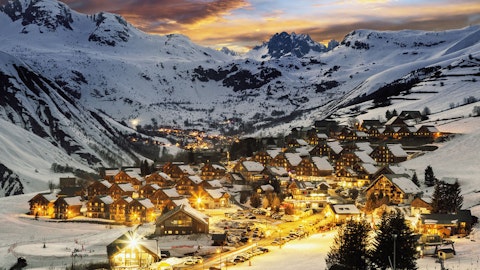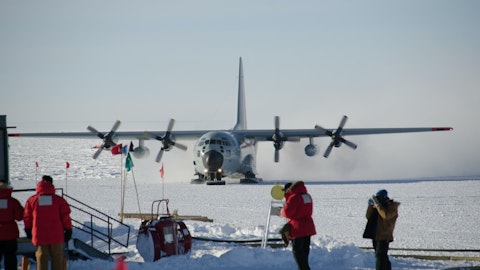In this piece, we will take a look at the five most bureaucratic countries in the world. If you want to take a deeper look at the link between the corporate world and bureaucracies, then read 25 Most Bureaucratic Countries in the World.
5. Republic of Djibouti
Percentage of public sector employment as a share of total employment: 39%
Djibouti is an African country which covers just 23,200 square kilometers. It also has one of the smallest economies in the world, which is estimated to be worth just $3.7 billion. However, a small population lends Djibouti a higher GDP per capita of $3,666 than several other African countries. It also benefits from a Red Sea port that handles large volumes of cargo each year.
4. Republic of Maldives
Percentage of public sector employment as a share of total employment: 40%
Maldives is an Asian country in the Pacific Ocean that is made up of more than two dozen archipelagos. It measures just 300 square kilometers in area, but a population of roughly half a million people places it among the top ten most densely populated countries in the world. The Maldives economy is worth $7 billion, and the country relies primarily on agricultural products that utilize fishing to earn its foreign exchange.
3. Arab Republic of Egypt
Percentage of public sector employment as a share of total employment: 40%
Egypt is an iconic African country that is famous the world over for its pyramids. Like Djibouti, it also shares a coast with the Red Sea, and Egypt maintains control over one of the most important shipping routes in the world the Suez Canal. Economically, the Egyptian economy is plagued with the same set of problems that several other developing countries face. It has high levels of debt and often relies on friendly countries to shore up foreign exchange reserves.
2. Russian Federation
Percentage of public sector employment as a share of total employment: 45%
Russia is the world’s and Europe’s largest country in terms of area. It also has copious amounts of gas reserves, and Russian companies are among the biggest gas providers in the world. Russia is the direct successor of the Soviet Union, the world’s first purely communist nation. Naturally, it inherits the bureaucratic legacy of socialism which places control of state resources and production with a team of officials who are appointed rather than elected. The bureaucracy is also a key reason behind the Soviet Union’s fall, as it encouraged production simply for the sake of meeting targets rather than innovative products and business processes.,
1. Montenegro
Percentage of public sector employment as a share of total employment: 51%
Montengro is another young country on our list since it was set up in 2006. It has a $7 billion GDP and while the country has high levels of human development it also has high levels of income inequality. Political instability has harmed Montenegro’s economy, and its primary export is aluminum.
Disclosure: None. You can also take a look at 11 Best Consumer Cyclical Stocks To Buy Now and 32 Landlocked Developing Countries.





